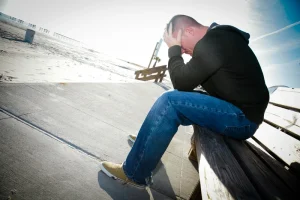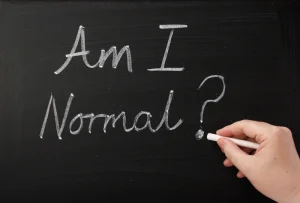
I suggest that until this gets sorted out you should get help with your children. Say for sleeping or anything at all, including herbs, OTC medications? There are numerous things that can interact and cause all kinds of problems.
- I read a few books on ptsd and that helped me understand what was happening to me because at times it makes you feel like you are loosing your mind…
- To cope with these issues, they may turn to drug and alcohol use, as it temporarily relieves these negative emotions.
- As a result, some experience flashbacks and intrusive memories from war and use alcohol as coping mechanisms.
Upcoming Observances and Related Events
After traumatic experiences, it is common for suffers of trauma to experience helplessness, suicidal thoughts, aggression, self-harm, depression and anxiety. Suffers of PTSD can endure hallucinations, nightmares and flashbacks. Once people experience traumatic circumstances, they can also develop guilt and shame which can manifest in alcohol and/or drug dependency. Alcohol dependency can worsen PTSD symptoms and create uncomfortable side effects. As many as 55% of women and 38% of men in the military have been targets of sexual harassment. And more than one fifth of women in the VA health care system report experiencing sexual assault.
Current study
- Third, these person-centered, detrended, scores account for variations in response rate due to the inclusion of the exposure variable for the count outcomes.
- Many people with post traumatic stress disorder (PTSD) experience blackouts, among other symptoms.
- This included the anxiety and substance use disorder modules, which were used to assess PTSD and AUD for sample description.
- All but two kept their hand up, and one who had lowered his hand said he was adopted and did not know about his parents.
● Similarly, it reduces the number of GABA receptors or alters their sensitivity. Due to this, one may face symptoms of withdrawal during periods of sobriety as the brain becomes ptsd alcohol blackout habitual of alcohol to maintain GABAergic activity. ● The brain reduces the natural production of dopamine (feel-good hormone) and the sensitivity of its receptors.

Study setting and participants
While these experiences may be scary in the moment, you can control and even prevent them with the right treatment plan. In this guide, we will discuss how to handle PTSD blackouts and regain control of your mind and body. The conduct problems model included random variance components for the time, time squared, and the lagged PTSS effect.
Fear is a part of the body’s “fight-or-flight” response, which helps us avoid or respond to potential danger. People may experience a range of reactions after trauma, and most people recover from initial symptoms over time. Those who continue to experience https://ecosoberhouse.com/article/anger-and-alcoholism/ problems may be diagnosed with PTSD. AUD and PTSD have shown a consistent comorbidity over many decades and in diverse populations. The strong relationship is present in representative surveys of the United States, throughout Europe, and in Australia.
People should work with their health care providers to find the best medication or combination of medications and the right dose. To find the latest information about medications, talk to a health care provider and visit the FDA website . Older children and teens usually show symptoms more like those seen in adults. They also may develop disruptive, disrespectful, or destructive behaviors. Older children and teens may feel guilty for not preventing injury or deaths.
- Up to a third of those who survive traumatic accidents, illness, or disaster report drinking problems.
- Women who have PTSD at some point in their lives are 2.5 times more likely to also have alcohol abuse or dependence than women who never have PTSD.
- This emotion dysregulation may cause these individuals to misuse alcohol to alleviate negative emotionality.
- The sooner you begin processing your feelings and emotions, the less likely you will develop PTSD.
But sometimes, auditory or visual cues can help a person piece together memories of what happened during a blackout. These cues could come in the form of texts, pictures or conversations with people who were present while you were blacked out. The medical term for blackouts is called transient loss of consciousness (TLOC). Blackouts involve complete memory loss caused by your brain’s inability to record new memories for a period of time due to the effects of excessive alcohol, substance misuse or some other condition.

As a result, some experience flashbacks and intrusive memories from war and use alcohol as coping mechanisms. Sixty-eight percent of Vietnam veterans who sought help for PTSD suffered from alcoholism. 1 in 3 veterans currently getting treatment for substance abuse suffer from PTSD. From 2003 to 2009, there was a 56 percent increase of veterans getting treatment for alcoholism. Different psychotherapeutic techniques and therapies may be used to treat comorbid AUD and PTSD. Psychotherapy, also known as talk therapy, can help people identify their emotions and triggers for symptoms to help them develop better coping mechanisms.
Post-Traumatic Stress Disorder
Gender-specific interventions targeting emotion dysregulation may be effective in reducing alcohol-related consequences in individuals with PTSD. Women may possibly benefit from interventions that focus on difficulties engaging in goal-directed behavior, while men may benefit from interventions that target impulse control difficulties when upset. Ultimately, each veteran’s experience is unique, and there is no experience that you have to go through to be considered traumatized. If you find it hard to live with the aftermath of your service, particularly if you are engaging in blackout drinking or other unhealthy behaviors, you may be at higher risk of developing alcohol addiction due to an underlying mental health issue. Some people with PTSD, such as those in abusive relationships, may be living through ongoing trauma.
Deixe um comentário